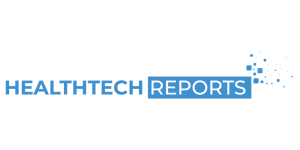Dive Brief:
- Epic, a leading EHR company, has committed to joining the government’s optional framework for national data exchange. Since Epic is the leading medical software vendor in the U.S. hospital market, the addition is a significant win for the new network and is encouraging for industry adoption.
- When the application process to become a qualified health information network or QHIN, opens later this year, Epic said it intends to join the Trusted Exchange Framework and Common Agreement, the government’s blueprint for developing a standard connectivity infrastructure for providers, plans, patients, and public health agencies.
- The EHR vendor has a history of fighting government initiatives to increase interoperability, most notably the twin HHS regulations encouraging data sharing in early 2020. But according to Matt Doyle, lead of Epic’s R&D team and software development team for interoperability, TEFCA is appealing to Epic because of its private-sector friendliness and emphasis on privacy.
Dive Insight:
TEFCA, which the Office of the National Coordinator for Health IT completed in February, aims to reduce administrative complexity by replacing specific legal agreements between healthcare institutions with a single, universal agreement that qualifying networks and their members must sign.
While raising the threshold for institutions seeking certification as QHINs—groups of organisations that agree to the same data-sharing infrastructure—the framework standardises the operational side of data exchange.
TEFCA participation is not required or financially rewarded by the government, which some experts feared may hinder the network’s early adoption and effectiveness.
It remains to be seen how much TEFCA can affect the notoriously inefficient data-sharing in the healthcare sector. However, the ONC now has a significant partner with the arrival of Epic.
If the EHR provider is approved as a QHIN, its network of about 2,000 hospitals and 45,000 clinics will be able to join the national framework and exchange information with other eligible networks included in it.
As the TEFCA framework was being created, Epic collaborated with the ONC, its business partner Sequoia Project, and the larger health IT community to create a consensus on its standards and procedures.
According to Doyle, the vendor is now conducting research and developing a platform that facilitates information exchange between its clients and other TEFCA member networks.
When the first batch of QHINs is ready, which is anticipated to be later this year or early next year, Epic intends to file for certification.
Doyle stated, “We have a sizable R&D footprint in interoperability, including the work we’re doing for TEFCA. Though project planning is still being completed by Epic, a number of employees will be diverted to TEFCA, which the company says “will be one of our more substantial interoperability projects.”
It is noteworthy that the vendor has changed course to back government efforts to increase interoperability. The easy data-sharing within Epic’s own systems has drawn criticism, but the company has struggled to exchange data with its rivals.
In a prior campaign, the business argued that broad HHS laws supporting interoperability should be stopped, or at the very least, their data-sharing obligations should be relaxed. It did this by raising privacy and security issues. The requirements of such regulations started to take effect during the epidemic two years after they were finalised.
Because of Epic’s history of working with federal partners—the vendor has been exchanging medical records with the Departments of Defense and Veterans Affairs since 2011—and because the ONC incorporated several privacy protections based on the HIPAA privacy law, Doyle said, TEFCA is appealing to Epic.
Additionally, Doyle noted that “the ONC has been quite responsive to criticism” and “has not tried to reinvent the wheel, but rather has scaled up accomplishments the sector has already experienced.”











